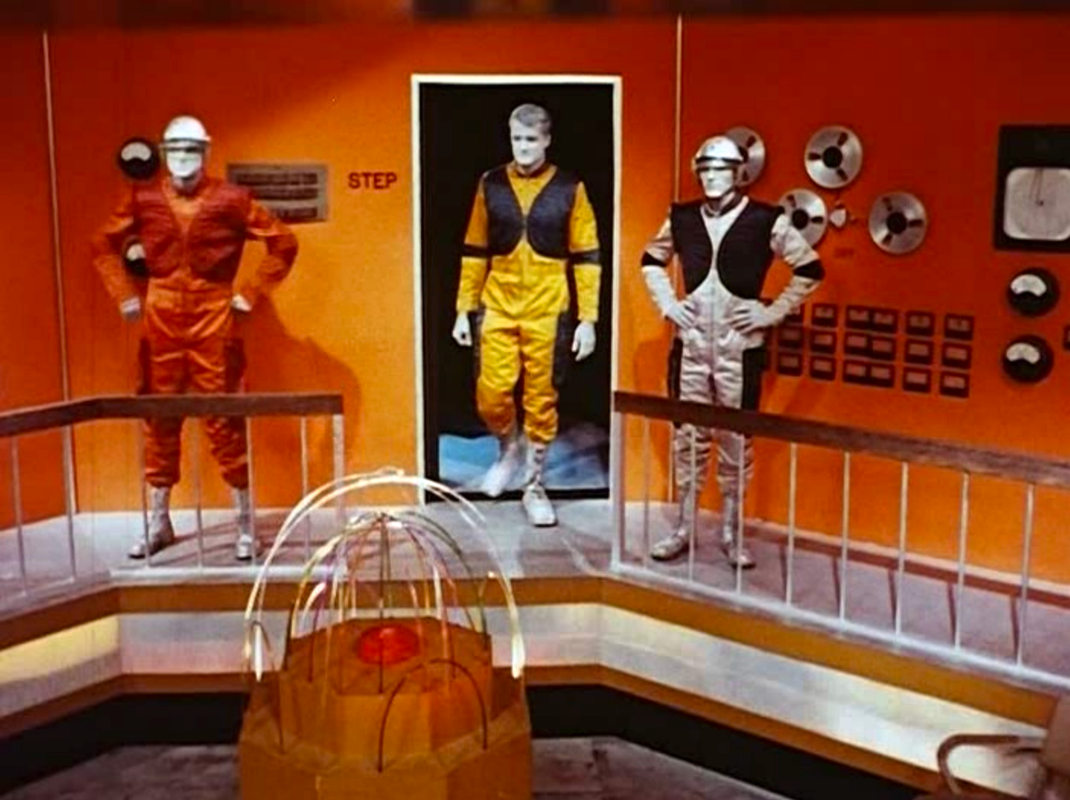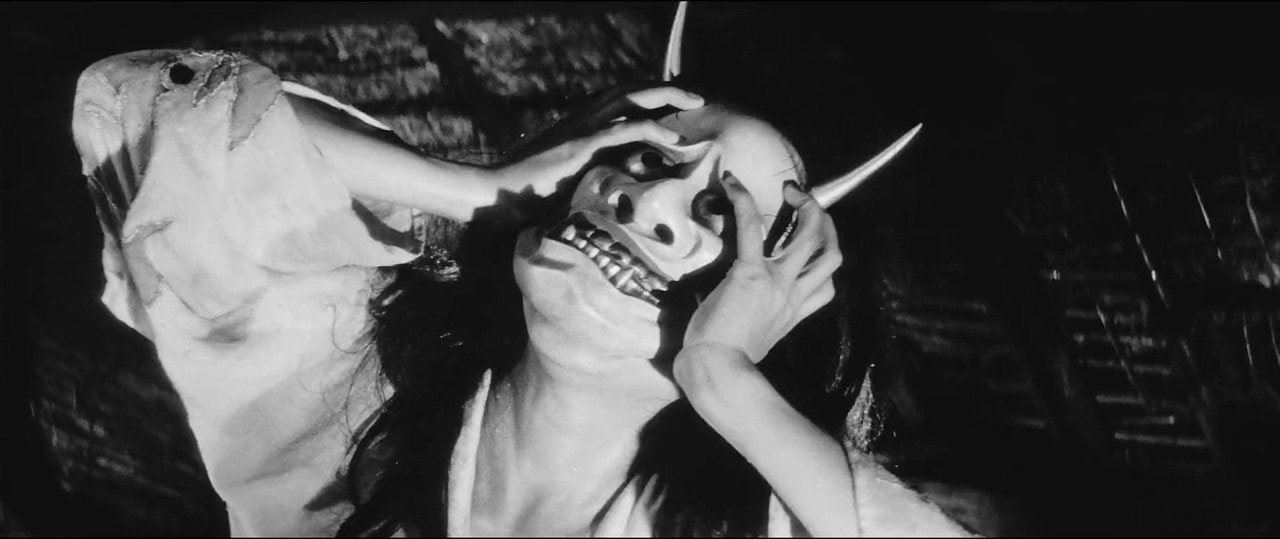
This is a profoundly unappealing film, and I’m guessing that is what John Waters was after. The whole film has a certain “fuck you” quality. Its shot in grainy black and white, 16mm stock. The contrast is blown out and it was filmed without sound. Actually Waters has said that he doesn’t really care for the film. The fact that it is unpleasant and not supported by its maker doesn’t mean its not an interesting film worth watching, although once the blood and vomit start flowing you may want to quit.
Waters wrote, filmed, produced, and edited Mondo Trasho in 1969. It was hist first film. His actors were a group of his friends including some who would become regulars in Waters’ films like Divine and Mink Stole. Divine stars as a depraved, sociopathic, femme fatale, in a world that doesn’t understand or sympathize with her.
The film has a soundtrack of music in place of actual synchronized or dubbed sound. Waters sat down with his record collection and dubbed in snippets of dozens of songs. The songs are used in place of dialogue. There is little thought put into them musically they are chosen for the lyrics which either reinforce the imagery or act as voices for the actors on screen. This means the songs are cut into pieces that interrupt each other and constantly change. It makes for a disjointed and aggravating sonic experience. In addition, the overall sound is full of blaring distortion making everything fuzzy and muffled. We hear arias from Tosca, lots of Elvis, The Bird by The Trashmen, the Mars section from Gustav Holst’s The Planets, and plenty of random B-side rockabilly, all smashed together while the characters on screen struggle to get through a series of crimes and misfortunes.
Actually for all its roughness and grit Mondo Trasho is tame compared to many of Waters’ other films like Pink Flamingoes or Desperate Living. Mondo Trasho may seem like it was crafted by a punk on a bag full of Benzedrine, but what actually happens in the film is not that shocking. To be fair on a mainstream scale its pretty transgressive but on a John Waters scale its not so bad.
Waters presents us with a woman getting accosted in the park by a foot fetishist. Later the same woman is hit by Devine’s car while Divine is distracted by a naked hitchhiker. After the assault in the park, and the car accident, the same woman is dragged unconscious to a doctor’s office where the doctor mutilates her feet with a saw.
Mondo Trasho has a foot theme threaded through it. There are several references to Cinderella and to Dorothy’s ruby, red slippers. Waters is sifting through American culture looking to expose something tawdry. Cinderella and Dorothy are already ridiculous depictions of women, but Waters gives us a drag queen and trans versions of these icons pushing everything into absurdity.
John Waters shares something in common with Alfred Hitchcock. They both have a tendency to torture, harass and occasionally murder their heroines. Both men have a palpable distain for bourgeois values and the illusions of polite society. Both men see that there is something untoward that society is trying to keep hidden, and both men find ways of exposing it. Norman Bates is not so dissimilar to Divine. Both Norman and Divine are driven by passions that mark them as abnormal. In later films Divine is often more of a sympathetic character but in Mondo Trasho he is nothing short of a sociopath dragging around a half dead woman and lying and steeling along the way.

Both filmmakers are interested in people society rejects. For Hitchcock its usually criminals, for Waters it is usually people who have been labeled deviant for sexual reasons. Characters who exist in the margins provide a vantage point from which to criticize society from the outside looking in.
Divine is torn between attacking society and wanting desperately to be accepted by it. The Virgin Mary keeps appearing to Divine, interrupting her odyssey. Each time this happens Divine drops to her knees and begs for forgiveness. Mary sports a tinfoil halo and Divine looks like a zaftig but penitent Jayne Mansfield stuffed into a glittering blazer. As soon as Mary disappears Devine immediately reverts back to causing more trouble. Divine is capricious and impulsive, an identity America wants to deny, but she is also ashamed and regretful, an identity America lauds.

Waters was 23 years old when he made this film. It is a brash and in your face movie full of youthful bravado. You can feel him sticking his tongue out at you. The ingredients that would compose his later films are all present in this first effort. The American Dream, the suburban life, a tug of war between conservative values and sexual expression, gender, sex and an operatic scale drama of emotionality and desperation.
His later films are more nuanced and layered. They are still shocking, in fact they are more shocking, but instead of simply attacking America with a sneer, Waters develops a more ambivalent relationship to his home country. His films feel more like exaggerations of what is already in American culture. He just turns up the intensity and lets America reveal itself.
When Jimmy Hendrix was asked about the version of The National Anthem that he played at Woodstock he explained “I’m an American so I played it, they made me sing it in school, so it was a flashback. We’re all Americans, aren’t we? When it was written then, it was played in what they call a very, very beautiful state, nice and inspiring, your heart throbs and you say ‘Great, I’m American!’ But nowadays when we play it, we don’t play to take away all this greatness that America’s supposed to have. We play it the way the air is in America today. The air is slightly static, isn’t it? You know what I mean?” Waters may have been more openly hostile toward America than Hendrix but there is a similar attitude in that America doesn’t need to be to be satirized through absurd exaggerations, an artist can simply turn up the volume and America will distort and satirize itself.

If you enjoyed this article click here for more
www.filmofileshideout.com/archives/the-female-prisoner-scorpion-series




[…] in a sarcastic celebration of camp and chaos. It certainly owes a lot to Waters’ early films like Mondo Trashoand Warhol’s Chelsea Girls. Primarily, Elevator Girls in Bondage is a celebration of cinematic […]